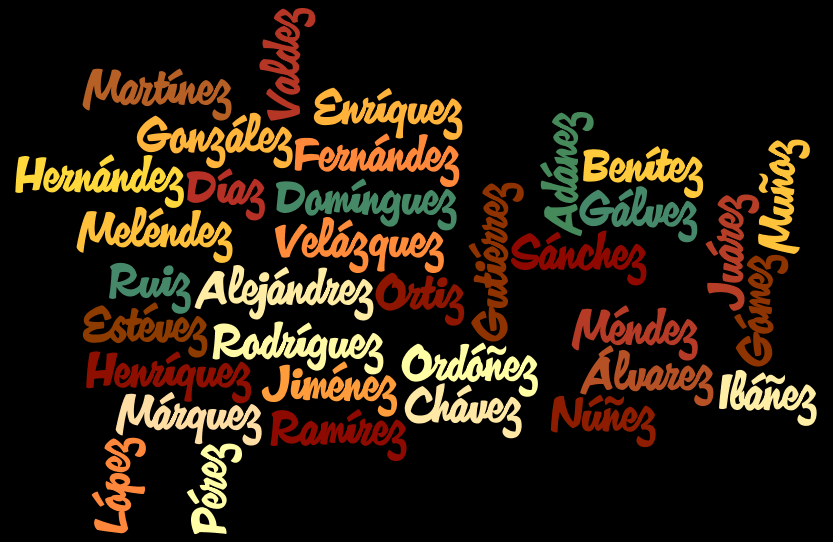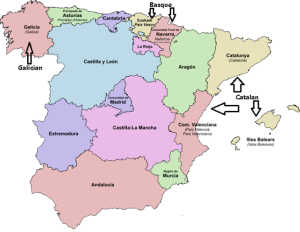Patronymics — names that mean “son of” someone — are something of a mystery in Spanish.
In English and other Germanic languages, most patronymics contain the actual word for son or daughter, as in English Samuelson, Danish Christensen, or Icelandic Mínervudóttir. Hebrew patronymics are just as transparent, although the word ben “son” is a prefix, not a suffix. David Ben-Gurion’s last name was a famous example. But the Spanish patronymic ending -ez, seen in names like Martínez and Enríquez, is clearly unrelated to hijo.
There are no definitive explanations for the origin of -ez. Ralph Penny, my history of Spanish guru, attributes it tentatively to possessive (genitive) forms of Germanic names like Roderick that came into early Spanish with the fall of Rome. The genitive form Roderici (i.e., Roderick’s) was shortened to Ruiz, with the all-important final -z, and Roderick itself to Ruy. Once established as a patronymic ending, the -z spread to other names, including those shown below.
To complicate matters, some Spanish patronymics derive from names that are now obsolete. Have you ever met a Gomo (the source of Gómez)? A Velazco? A Valdo? Other Spanish last names end with -ez by mere coincidence, like Chávez (as in the late Hugo), which comes from the Portuguese word for “keys.”
As a teacher I’m often reluctant to recommend Wikipedia. However, its resources on patronymics are impressive. They include
- descriptions of patronymics from languages around the world
- a long list of Spanish patronymics, most with -ez endings, but others with -iz, -oz, and -az
- in the same article, some alternative, Basque-centric theories of the origins of Spanish -ez
By the way, most of these patronymics have a written accent mark. This is simply because the next-to-last syllable is stressed even though the last letter of the word is a consonant. Explanations here, here, here, and a zillion other places on the web (not to mention textbooks, dictionaries, and the like).



